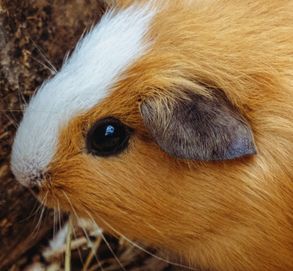
This condition is caused most commonly by Streptococcus equi subspecies zooepidemicus, but can be caused by other Streptococcus species, or Streptobacillus moniliformis. It manifests as encapsulated abscesses within the cervical (neck) or submandibular lymph nodes in guinea pigs. Streptococcus zooepidemicus can be found in the oral and nasal cavities of guinea pigs without causing clinical disease. It is thought that abrasions to the oral mucosa (due to rough feed, dental disease, or bites from other guinea pigs) increase the risk of migration of the bacteria to the regional lymph nodes. Streptococcus zooepidemicus is considered a zoonotic disease, but it’s exceedingly rare for it to spread from guinea pigs to humans.
Guinea pigs often show no other signs of disease, but in cases where Streptococcus zooepidemicus spreads systemically, other symptoms can arise. These can include, but are not limited to pleuropneumonia, metritis, otitis media, septicemia, or sudden death.
Medical conditions that may look similar include reactive lymphadenitis, tumors, and dental disease.
Diagnosis is made by needle aspirate biopsy of affected lymph nodes and culture. Dental examination and radiographs are indicated as well to rule out dental abscesses.
Treatment involves surgical opening and flushing of affected lymph nodes. In severe cases, removal of the lymph node may be warranted. Antibiotic choice will depend on the results of culture, but in the absence of a culture, the antibiotic choice should be both safe for us in guinea pigs and effective against Streptococcus species. Supportive care with assist feeding should be considered if any difficulty eating.
Prognosis is good if localized entirely to lymph nodes under the jaw or on the neck. IF the infection has spread systemically prognosis is guarded.
Copyright © All Rights Reserved
